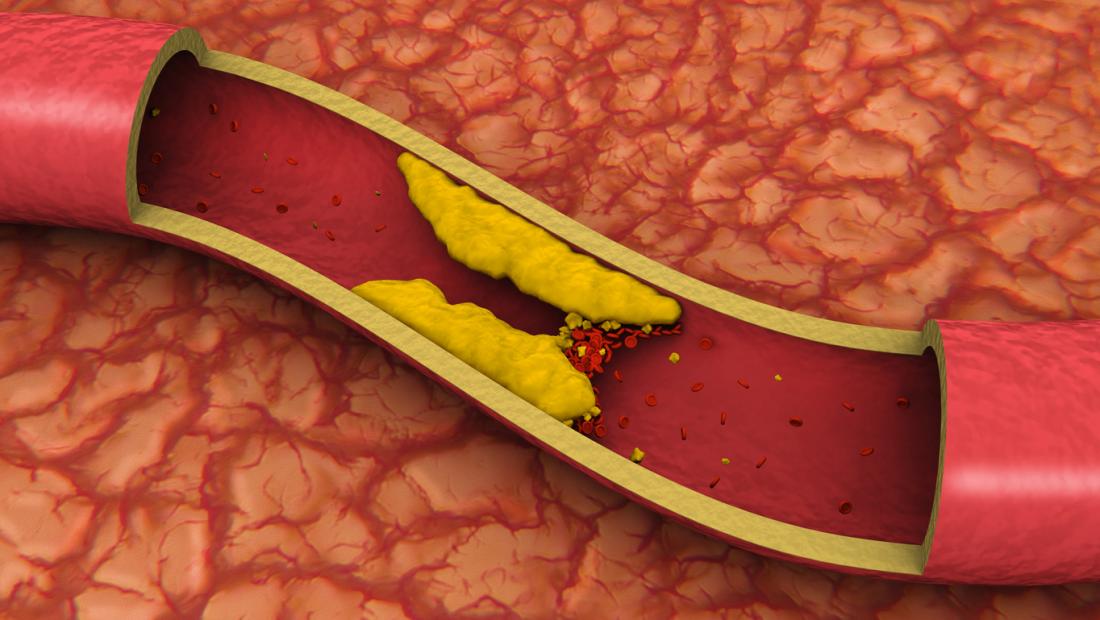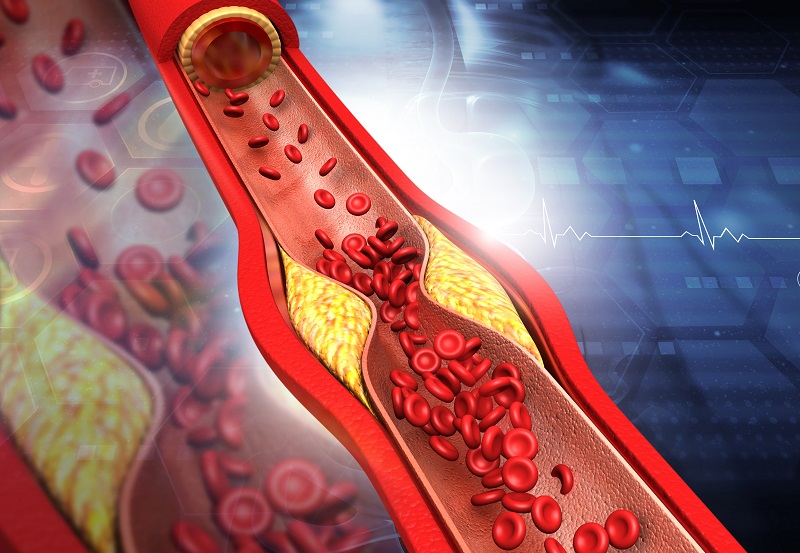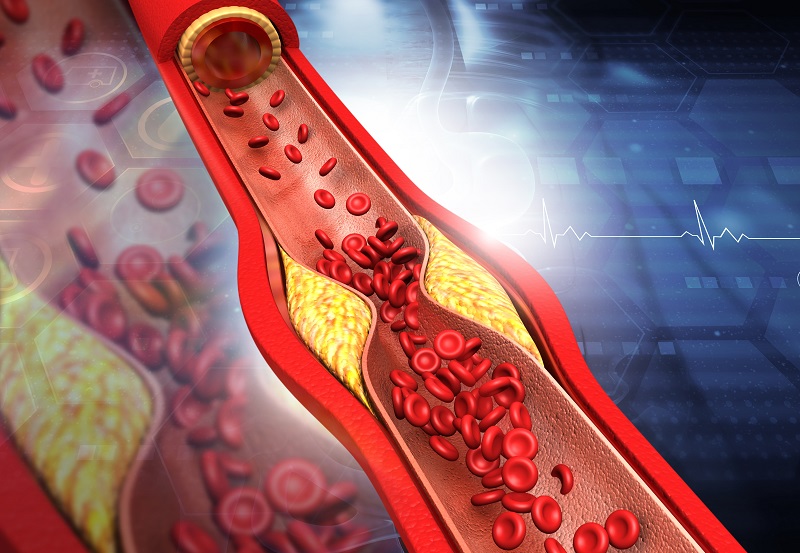Introduction
Exploring the ‘5 Ways To Tell You Have Clogged Arteries’ The human heart is a vital organ that pumps blood throughout the body. The blood carries oxygen and nutrients to the cells and removes waste products. The arteries are the blood vessels that carry blood from the heart to the rest of the body.
Atherosclerosis is a condition in which plaque builds up on the walls of the arteries. This plaque is made up of fat, cholesterol, and other substances. Plaque narrows the arteries and makes it harder for blood to flow through them. Atherosclerosis is a major cause of heart disease.
READ: Colon Cancer Claimed Kirstie Alley and Pelé. Here are the Key Symptoms
5 Ways To Tell You Have Clogged Arteries
There are several warning signs of clogged arteries that you should be aware of:
1) Chest pain or discomfort – This is often one of the first warning signs of clogged arteries. Chest pain can feel like pressure, tightness, or squeezing in your chest. It may also spread to your shoulders, arms, neck, or jaw. You may experience this pain when you exert yourself physically or when you’re under emotional stress.
2) Shortness of breath – If your arteries are partially blocked, you may have shortness of breath, especially with physical activity.
3) Fatigue – Clogged arteries can make it difficult for your heart to pump enough blood to meet your body’s needs. This can lead to fatigue and weakness.
4) Heart palpitations – Heart palpitations are an irregular heartbeat that can be caused by anxiety or a blockage in one

Chest pain or discomfort
One of the most common signs of clogged arteries is chest pain or discomfort. This can feel like a heavy weight on your chest, squeezing, or tightness. It may also come and go, and be worse when you’re active or under stress. If you have any type of chest pain, it’s important to see a doctor right away to rule out other conditions.
Shortness of breath
1. Shortness of breath: This is one of the most common and noticeable symptoms of clogged arteries. If your arteries are blocked, it’s harder for your heart to pump blood through them. This can cause you to feel short of breath, even when you’re at rest.
2. Chest pain: This is another common symptom of clogged arteries. If your arteries are blocked, it can cause chest pain or discomfort. This pain may be mild or severe, and it may come and go. It may also feel like pressure or squeezing in your chest.
3. Fatigue: If your arteries are blocked, you may not get enough oxygen-rich blood to your muscles. This can cause fatigue and make it difficult to exercise or do other physical activities.
4. Pain in other parts of the body: Clogged arteries can also cause pain in your arms, legs, neck, jaw, or stomach. This happens because the blockage can limit blood flow to these other parts of your body.
5. Dizziness or lightheadedness: When you don’t have enough blood flowing to your brain, it can cause dizziness or lightheadedness
Fatigue
1. Fatigue
One of the most common signs of clogged arteries is fatigue. This is because the heart has to work harder to pump blood through the arteries. This can lead to a decrease in energy levels and an overall feeling of fatigue. If you are experiencing fatigue, it is important to see your doctor to rule out other potential causes.
Heartbeat irregularities
One of the most common signs of clogged arteries is heartbeat irregularities. This can manifest as an irregular heartbeat, skipped beats, or a fluttering sensation in the chest. These heart irregularity symptoms are often caused by plaque buildup in the arteries that supply blood to the heart muscle. When the arteries are narrowed or blocked by plaque, not enough blood can reach the heart muscle, causing it to beat erratically.
Pain in other parts of the body
When arteries become clogged and damaged, it can lead to pain in other parts of the body. This is because the blocked arteries restrict blood flow to the areas they supply. This can cause pain, numbness, or tingling in the extremities. It can also lead to organ damage and failure if not treated promptly.
What are the foods that cause clogged arteries?

If you’re wondering what foods cause clogged arteries, look no further than the typical American diet. A diet high in saturated and trans fats, cholesterol, salt, and sugar can lead to the development of plaque in your arteries, which can narrow or block them. This can lead to a heart attack or stroke.
To help keep your arteries clear, focus on eating plenty of fruits, vegetables, and whole grains. Limit your intake of saturated and trans fats, cholesterol, salt, and sugar. And make sure to get regular exercise to keep your heart healthy.
How to prevent clogged arteries
1. How to prevent clogged arteries:
The best way to prevent clogged arteries is to live a healthy lifestyle. This means eating a healthy diet, exercising regularly, and not smoking.
Eating a healthy diet includes eating plenty of fruits, vegetables, and whole grains. It also means avoiding processed foods, saturated fats, and excessive amounts of salt.
Exercising regularly helps keep your heart healthy and decreases your risk of developing cardiovascular disease. Aim for at least 30 minutes of moderate-intensity exercise most days of the week.
Not smoking is one of the most important things you can do for your health. If you smoke, quitting is the best way to reduce your risk of developing cardiovascular disease.
Summary
5 Ways To Tell You Have Clogged Arteries- Clogged arteries can be a serious problem, so it’s important to keep an eye out for the signs that indicate you may have this issue. The 5 signs outlined in this article are chest pain, shortness of breath, fatigue, dizziness and numbness or tingling in your hands or feet. If you experience any of these symptoms on a regular basis, make sure to visit your doctor as soon as possible to get checked out. Taking early action can help ensure that any potential issues with clogged arteries don’t become worse over time.
READ MORE: Yeast-rich foods could be linked to a five-fold increase in gout ‘attacks’ – worst culprits

